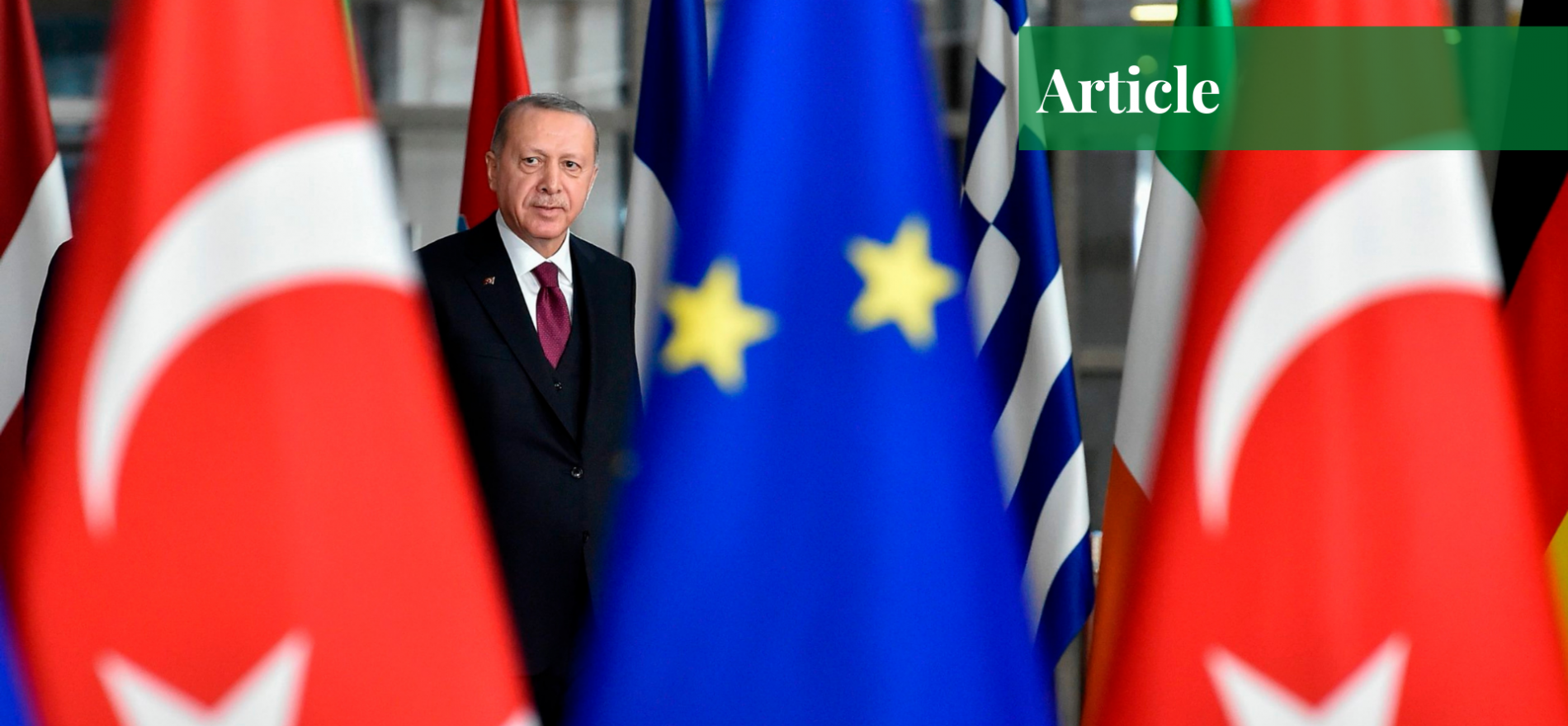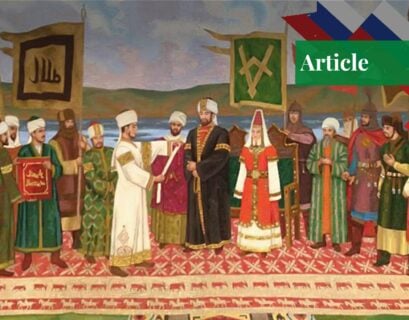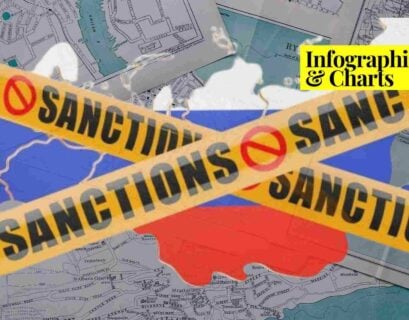Muzamil is a freelance writer with an expertise in global politics and international relations. He currently also works as a writer/contributor for Paradigm Shift. Apart from that, he loves to read and is socially active in philanthropic activities.
Turkey and Greece: Territorial Waters
Turkey’s intrusive foreign relations, for a while, have been regarded as unconscionable. It alarms neighboring states of Turkey’s growing influence and power, with involvement stretching from Syria to the Caucasus. A few months back, Turkey had flexed its muscle against Greece again. They are at loggerheads against one another over a host of issues far from their resolve.
The main issue revolves around the rights of exploratory drilling of energy reserves found last year in the Eastern Mediterranean region in the waters of Cyprus. Turkey claims that the Greek Cypriot government is maneuvering illegally in its territorial waters, which is refuted by Cyprus and Greece, claiming it as their rightful endeavor as per their rights to extract energy reserves in their respective Exclusive Economic Zones (EEZ).
Turkey claims that according to United Nation Law of Sea, twelve nautical miles from the coastal line is in the territorial waters of the respective country, whereas a right to fish, drill, or mine is in an EEZ, which extends up to 200 nautical miles, is the right institutionalized upon the coastal state under the same law. However, if the maritime distance between the two countries is less than 424 nautical miles, then the decision concerning maritime boundaries related to EEZ is taken through bilateral agreement.
Since it has maritime proximity with Libya, Turkey has legalized a bilateral deal with it to ensure the respective EEZ boundaries. The Kemal Reis, a Turkish frigate, was one of the five escorts sent to protect Oruc Reis, an exploration ship designed to hound for untapped reserves of oil and gas. On the confronting side, The Limnos, a Greek frigate, was tasked to protect the Greek Exclusive Economic Zone, and it came at the Turkish frigate on 12th August in the wake of maritime onslaught.
Upon this, Recep Tayyip Erdogan, reprimanded by saying that the retaliation would not halt at any cost. The rebuke was reciprocated by Greece that claimed it to be a breach of territorial sovereignty. The full-blown crisis has been boiling underneath since the wrangle between the two countries in 1996 when both Turkey and Greece came to a brink of war over the disputed Aegean islets.
Athens, the Greek capital, maintained that although the said islands were small, they still had their own continental shelves. However, this was rejected with disdain by Ankara claiming that if the Greek claim is hypothetically accepted, it will make the Aegean Sea a Greek lake, which would be utterly unacceptable to the Turkish diplomats who see their country as a regional power that has the inalienable right to explore the resources within the ambit, confirmed under the UN Law of the Sea.
Greece has clarified that it will not tolerate any drilling in the south-east of Crepe, another island of Greece. For the past few years, Turkey has adopted a revanchist doctrine known as Blue Homeland, according to which it undertakes to secure its regional right in the waters of the eastern Aegean Sea and northern Mediterranean region by disregarding the islets of Greek. Following the exploratory missions in the Mediterranean region by Egypt and Israel concurrently finding massive energy reserves, other countries in the region have joined the bandwagon too.
Since Turkey is reiterating its geopolitical position by filling the vacuum left by the Western states, it felt betrayed when Greece, Cyprus, and Israel signed a deal in January 2020 to build a 1,900 km long undersea pipeline to carry 10 billion cubic meters of natural gas a year, which is a tenth of the EU’s needs, to Europe bypassing mainland Turkey. This project alone will be entitled to a project cost of about $6-7 billion.
Another bout was felt in Ankara when in January 2020, Cyprus, Greece, Israel, Italy, Jordan, and Palestine decided to form a bloc called East Mediterranean Gas Forum under the common grounds of energy exploration. Turkey was left on its own due to its odd attitude against the liberal Western powers who maintained their regional clout at multiple fronts. This materialized when France applied for membership, while the United States did for observer status.
Turkey and Northern Cyprus: The Last Straw for Greece
Another active potential conflict between Greece and Turkey is over the divided land of Cyprus which recently got freed from the embargo of the United States; Turkey is the only country to have recognized Northern Cyprus. The island is ethnically split between its majority Greek population in the south and Turks in the north since an Athens-inspired coup aimed at a union with Greece prompted Turkey to take firm action against their fellow-ethnic population in the north. Hence, Turkey invaded Cyprus in 1974 and seized a third of the island. This fight was cooled off with the call from Washington to exercise restraint.
Turkey and Libya: The Masterful Alliance
Turkey has found itself against a broad coalition of European and Middle Eastern rivals in the background of Turkey’s involvement in Libya and Syria. For years, Libya has become a battleground where a host of countries are involved for their personal interests in the wake of the Libyan civil war orchestrated by the renegade Chief Marshal General Khalifa Haftar in the east against the UN-recognized government in the west.
In this brawl, Turkey is backing up the UN-recognized Tripoli Government of National Accord (GNA), while France, Egypt, United Arab Emirates (UAE), and Russia are supporting General Haftar. The largest French energy company, Total, has invested in Libyan oilfields which are controlled by Haftar. Similarly, it was reported that French anti-missile systems were found in one of the General’s bases, though France has refuted this claim.
To counter such, Turkey has sent arms, troops, and thousands of Syrian mercenaries to the Tripoli government in order to secure it against French intrusion. This offensive prompted a crisis in June when a French frigate, which was working as part of a NATO mission, was halted by a trio of Turkish naval vessels while the former was inspecting the suspected breach of UN Arms Embargo on Libya by a ship.
President Erdogan’s assistance came at a price for Libya’s government as it bolstered a deal featuring Turkish claims in Mediterranean waters. The accord proved fatal for the region as it mapped out the Libyan and Turkish Continental Shelves and Exclusive Economic Zones spanning over the Mediterranean, even overlapping with those of Cyprus and Greece. To counter this move, Egypt and Greece signed their own maritime accord which has become a conflicting zone as it has invoked Turkey to send its exploratory ship, Oruc Reis.
Turkey’s Other Foreign Relations
Turkey‘s foreign relations are not bound within the Mediterranean region rather its entanglements have rippled far more in other regions. Regional rivalry with the UAE is one of the contours of the Turkish foreign policy which has posed a grave threat to the peace of the region. Turkey suspects the UAE’s involvement in the 2016 coup attempt and in supporting People’s Protection Units (YPG) and a separatist Kurdish group, Kurdistan Workers’ Party (PKK).
Turkey and Syria: For the Buffer Zone
In Northern Syria, Turkey has imposed its interests particularly against Bashar al-Assad’s government and its functioning YPG soldiers. Turkey has backed the Syrian rebels who are trying to topple the autocratic regime of the Syrian leader, Bashar al Assad. Although it has lost in securing favorable grounds in Syria, Turkey still continues to protect its areas so that it does not have to welcome a huge number of refugees within its territory.
Turkey keeps stabilizing its regions by giving ample training facility to local police, its civilian services, and by replacing the Syrian pound with the Turkish lira. After the US-Turkey deal last year, Turkey secured a 30-km deep strip inside Syria, which extends 145-km along its border, to remain a buffer between its territory and the Syrian warfare.
Iraq, Qatar, and Others: Turkey’s Convoluted Foreign Relations
Furthermore, Turkey has also neutralized a major part of Northern Iraq by battling Kurdish fighters almost 200km inside Iraq. The operation, last year, was propelled mainly against PKK but Turkey has managed to set up a number of new outposts in the country to keep its clout vivid there. Iraq’s Kurds fear that their aspirations to secure a permanent statehood in Iraq would shatter if Turkey stayed any longer.
PKK has launched an armed campaign against the Turkish state for more than four decades now, which is considered a national threat to its sovereignty. Since then, Turkey has been adamant to expel PKK out of Iraq and destroy its tunnels and fortifications. In the Middle East, Turkey has played a strategic role in the security of Qatar, which has attracted a firm rebuttal from the Cooperation Council for the Arab States of the Gulf.
Like Turkey, Qatar has backed Islamist movements, which perpetrates danger for autocratic Arab countries in the Middle East. Similarly, offering to provide safe havens for the Islamists who are fighting for the sake of the estranged President Abd Rabbo Mansour Al Hadi, Turkey has shown interest in Yemen’s civil war. Along with that, in recent skirmishes between Azerbaijan and Armenia, Turkey is backing up Azerbaijan’s claim upon the disputed Nagorno-Karabakh territory while providing arms to combat against Armenian forces.
For the past several decades, prejudices against Muslims have grown exponentially in Western and European nations, but President Erdogan’s firm stand against Islamophobia has cultivated strong results. By sending foreign diplomatic missions, mobilizing aid agencies, lobbying groups, and providing friendly academics all over the world, Erdogan has delivered a veritable campaign against Islamophobia, proving that Turkey will lead with its Ottoman legacy that ruled most of Europe and the Middle East for more than 500 years.
If you want to submit your articles and/or research papers, please check the Submissions page.
The views and opinions expressed in this article/paper are the author’s own and do not necessarily reflect the editorial position of Paradigm Shift.



















